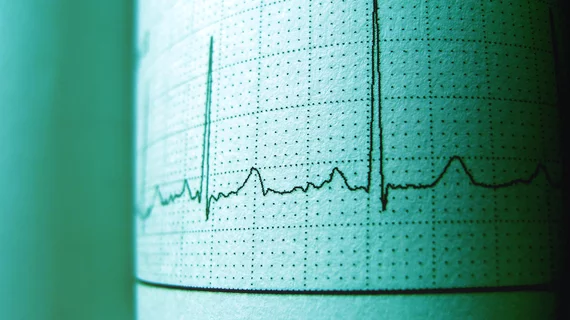AI predicts mortality risk based on ECG results with 85% accuracy
Using electrocardiogram data along with details about a patient’s age and sex, an artificial intelligence model was able to predict one-month, one-year, and five-year mortality outcomes with 85% accuracy, according to a study published in Nature [1].
The results offer insight into ways that low-cost healthcare diagnostics can potentially offer practitioners a deeper understanding of a patient’s overall health status, according to first author Weijie Sun, a computer science PhD candidate at the University of Alberta, and coauthors.
“These findings illustrate how machine learning models can be employed to convert routinely collected data in clinical practice to knowledge that can be used to augment decision-making at the point of care,” the authors wrote.
The model estimated mortality risk for more than 244,000 patients in the province of Alberta with an average age of 65.8 years. Each of the ECGs examined were linked to a specific healthcare episode (such as shortness of breath, chest pain, or an irregular heart beat), and the data was collected between 2007 and 2020.
Blood test data improves mortality risk prediction
Some of the ECGs could also be linked to results from blood tests taken on the same day, which offered data points on a patient’s creatinine, glomerular filtration rate (GFR) calculated from creatinine, hemoglobin, potassium, sodium, and troponin.
When including this lab test data along with the other information, the model was able to predict mortality rates even more accurately, the authors noted.
AI and the ‘learning healthcare system’
The ultimate goal of efforts to train AI prediction models such as this one is to create a “learning healthcare system,” explained principal investigator Padma Kaul, professor of medicine and co-director of the Canadian VIGOUR Centre, in a University of Alberta statement about the study.
“We want to take data generated by the healthcare system, convert it into knowledge and feed it back into the system so that we can improve care and outcomes. That’s the definition of a learning healthcare system.”
View the full study here.
